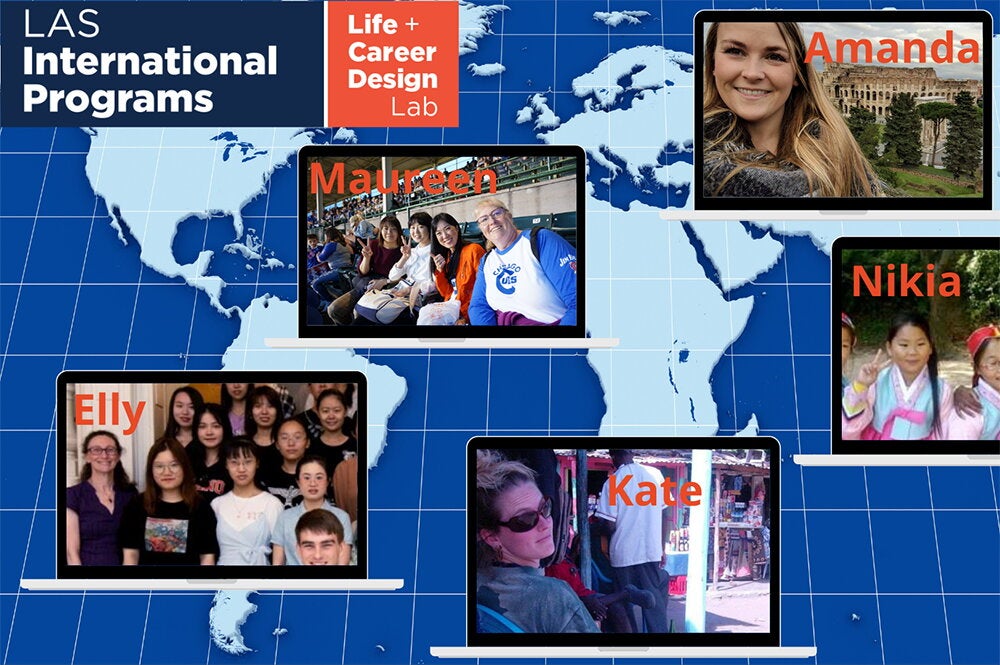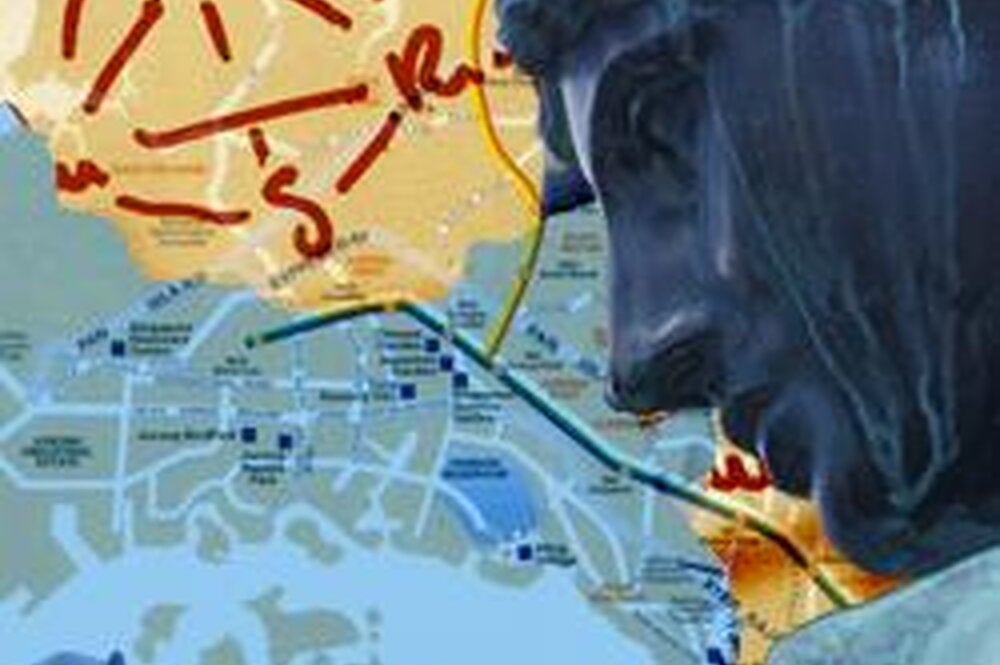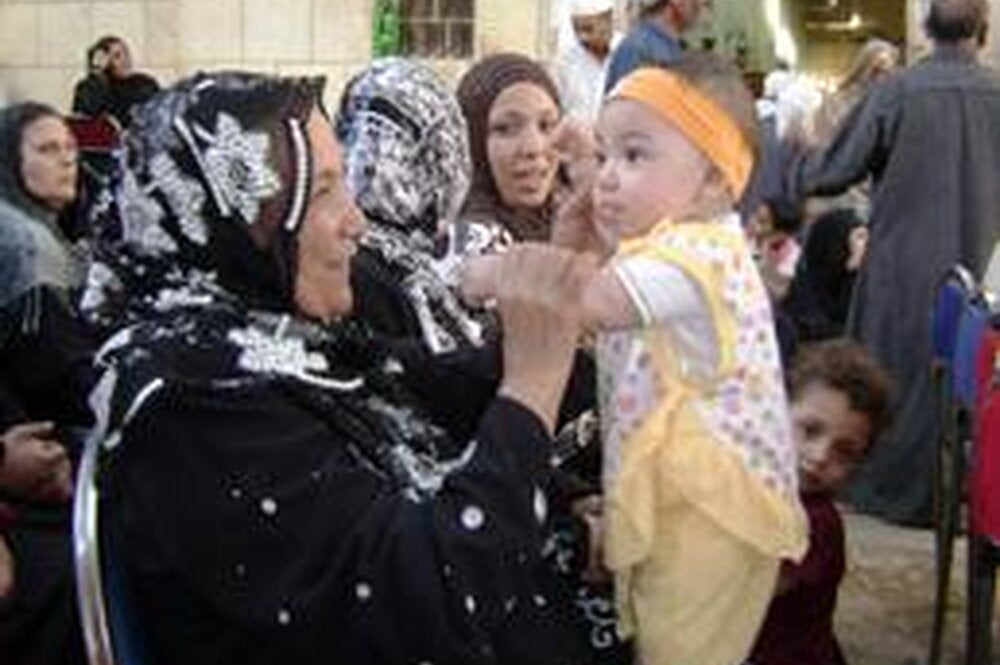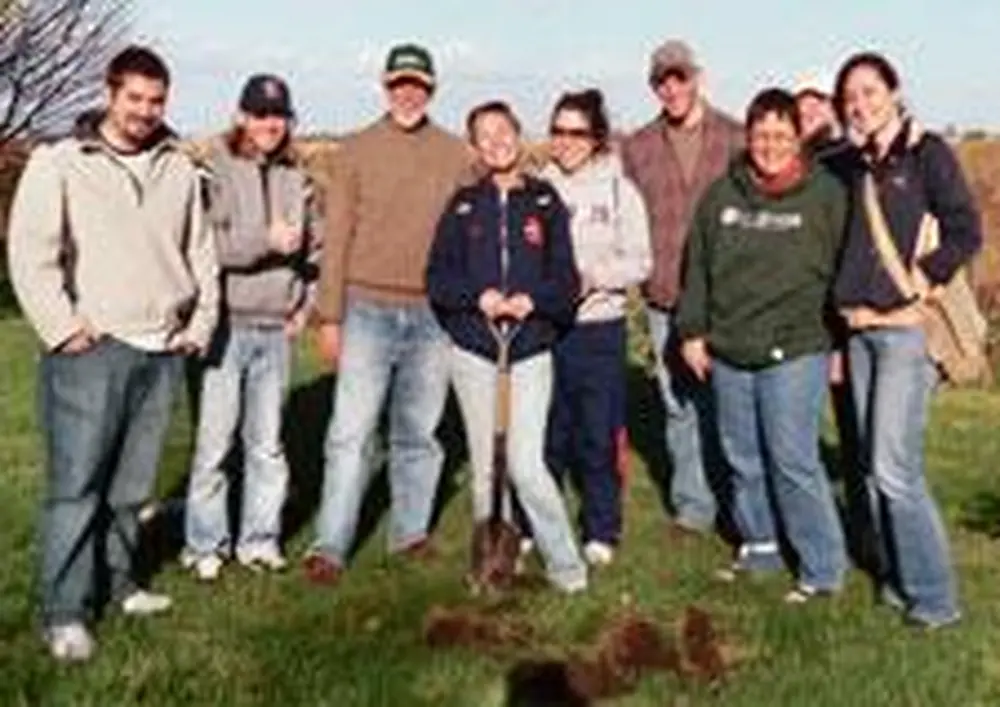

Studying abroad is no vacation—even in Vienna. For the 38-plus years that students have spent a semester or two in the Viennese capital as part of one of U of I’s longest-running study abroad programs, the Austria Illinois Exchange Program (AIEP), they’ve had the kind of eye-opening experiences that have literally changed their lives. They are seeing life through another lens, says Bruce Murray, professor and resident director of the program for the past 17 years, “and you learn more about your own country than about the one you are visiting.”
One of the lessons learned of late, though, is that these eye-opening international trips come at a heavy cost to the environment—anywhere from one to five tons of carbon per flight per person by estimates Murray has seen. “In the U.S. we are dragging our feet, but in Austria there are lots of examples of reducing carbon and reusing environmental resources.”
As a result of some global soul searching, Murray has launched a new effort to make studying abroad carbon neutral, called AIEP E2. “Our carbon footprint has amplified in the past five years,” says Murray, “so I felt that studying abroad should be linked with reducing our carbon footprint.”
On October 26, alumni and members of the program rode bicycles to the rural home of retired U of I professor Jim Evans for a symbolic tree-planting to inaugurate the new program. A few weeks earlier Murray and 11 Austrian and U.S. students in the program planted 600 trees and shrubs, some taller than a man, others no more than a couple of feet high, in a field along the Danube River, as their gesture towards minimizing their impact. Neither effort will eliminate the carbon debt from the transatlantic flight, says Murray, who acknowledges that it would take 50 shrubs like those they recently planted absorbing carbon for 80 years to neutralize the CO2 emissions from one person’s flight from Chicago to Vienna. Still, it’s a start.
Funding for the effort comes from U of I’s Academy of Entrepreneurial Leadership. Two years ago, it hosted “an idea bounce” competition, in which students or faculty had one to two minutes to present a proposal that could make a commercial or social difference. Murray proposed carbon-neutral study abroad. He didn’t win, but the program’s director, Anthony Mendes, was sufficiently intrigued to grant him $5,000 to flesh out the idea. “What impressed me was its scalability,” says Mendes. “There was the ability to expand the initiative to other universities.”
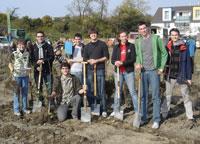
Among the projects now underway is a Web platform for exchanging information on climate change as well as collaborating and organizing events. Murray and other faculty in the Department of Germanic Languages and Literatures, where the program is based, are building partnerships with other U of I faculty who have expertise on climate change, including faculty in LAS’s new School of Earth, Society, and Environment, who were major contributors to the Nobel prize-winning studies on climate change. Students and faculty in the school’s interdisciplinary environmental majors were invited to examine ways of collaborating with AIEP.
Other early steps included the tree planting program in Vienna as well as a trip to the town of Güssing, where students learned how this economically-strapped community transformed wind energy into a viable product. At the U of I, students also are assessing on-campus recycling with the goal of recommending improvements.
“We are also working on a certificate for program participants in which they pledge to reduce their carbon footprint before, during, and after they study abroad,” says Murray. With guidance from the expanding group of collaborators, he hopes to develop realistic, and substantive, ways for students to earn carbon credits.
“Once students arrive in Austria, they take public transportation in the city; however, on weekends or at the end of their stay, the popularity of low-cost flights among European cities has reduced the number of them opting for the slower but more energy efficient train travel. That’s something they can change.”
Back in Urbana, they can make tradeoffs such as biking instead of driving, says Murray.
“If we preach about the interconnectedness of the world, then we have to think globally about our impacts,” says Murray. “It’s time for us to adopt our own version of the Hippocratic oath: ‘First, do no harm.’”
